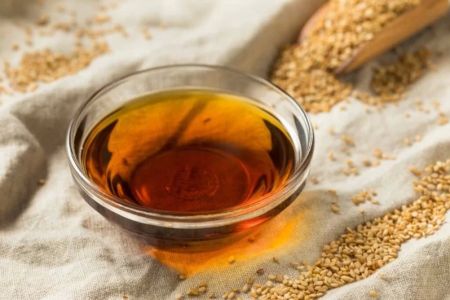Understanding Chinese Food Spices and Herbs
When it comes to Chinese cuisine, the richness of its flavors stems from a variety of spices and herbs. For anyone unfamiliar with the intricacies of Chinese cooking, the multitude of ingredients used might seem overwhelming. However, once you begin to understand the role these spices and herbs play in the kitchen, you'll unlock the secrets to making authentic Chinese dishes right at home. In this guide, I’ll walk you through some of the most commonly used Chinese spices and herbs, and explain how they shape the flavors of your favorite dishes.
1. The Foundations of Chinese Flavor: Spices and Herbs
Chinese cuisine is known for its deep, complex flavors, and the secret lies in its use of spices and herbs. Unlike Western cuisine, where herbs and spices might be used sparingly, Chinese food relies on bold and diverse ingredients to create a harmonious balance of flavors. These flavors typically combine the Five Elements of Chinese Cooking—sweet, sour, salty, bitter, and umami—which are brought to life through these essential spices.
2. Star Chinese Spices That You Must Know
Now, let’s take a closer look at some of the most important spices used in Chinese cuisine. These spices are often combined in unique ways, making each dish distinct and unforgettable.
2.1 Star Anise: The Sweet, Licorice Flavor
Star anise is one of the most iconic spices in Chinese cuisine. It has a distinct star-shaped appearance and a sweet, licorice-like flavor. Star anise is typically used in braised dishes, such as the famous “red-cooked” pork, and it’s an essential ingredient in Chinese five-spice powder. Its deep flavor adds warmth and complexity to stews and soups.
2.2 Sichuan Peppercorns: A Tingling, Spicy Sensation
Sichuan peppercorns might just be the most unique spice in Chinese cuisine. They provide a numbing sensation on the tongue, which is known as “mala” when combined with the heat of chili peppers. This spice is often used in dishes from the Sichuan province, like Mapo Tofu and Kung Pao Chicken. Their distinct tingling sensation complements the heat and adds an extra layer of complexity to spicy dishes.
2.3 Cinnamon: A Sweet and Warm Aroma
In Chinese cooking, cinnamon is not just reserved for sweet dishes, like it often is in the West. It is commonly used in savory dishes as well, where it pairs beautifully with meats like duck and pork. The warm, sweet aroma of cinnamon helps to balance out the richness of fatty meats, making it a key player in Chinese stews and braised dishes.
2.4 Cloves: Aromatic and Pungent
Cloves are small but potent, adding a sharp, aromatic flavor to Chinese cooking. They are often found in braises, marinades, and soups, especially in recipes from the southern regions of China. While cloves are pungent on their own, they add a subtle heat and warmth to dishes, enhancing the overall depth of flavor.
3. Essential Chinese Herbs
Herbs in Chinese cuisine serve a slightly different function than spices—they are often used for their aromatic properties and health benefits. Here are some of the most essential herbs that define Chinese food:
3.1 Ginger: Fresh, Zesty, and Pungent
Ginger is a staple herb in Chinese kitchens, offering a fresh, zesty flavor that pairs beautifully with savory and sweet dishes alike. It’s commonly used in stir-fries, broths, and even in desserts. Beyond its delicious taste, ginger is also believed to have numerous health benefits, including aiding digestion and reducing inflammation.
3.2 Garlic: The Flavor Foundation
Garlic is another essential herb in Chinese cooking. Its pungent aroma and sharp flavor form the base of many Chinese dishes, including stir-fries, marinades, and sauces. When garlic is sautéed, it releases a rich, savory flavor that complements nearly every Chinese dish, from sweet and sour pork to chicken with black bean sauce.
3.3 Chinese Chives: Mild and Slightly Onion-Like
Chinese chives, also known as garlic chives, are a mild alternative to regular garlic or onions. They are frequently used in dumplings, stir-fries, and as a garnish for soups and noodle dishes. Their subtle flavor adds freshness without overpowering other ingredients, making them an ideal herb for light, aromatic dishes.
3.4 Chinese Mint: Refreshing and Fragrant
Chinese mint, a key herb in many Southern Chinese dishes, provides a refreshing and aromatic note to the cuisine. Often used in both savory and sweet applications, this herb can be found in soups, salads, and even desserts. Its cool, minty flavor makes it particularly popular in summer dishes, where it balances out the heat of spicy ingredients.
4. Blending Herbs and Spices: The Art of Chinese Seasoning
One of the beautiful things about Chinese cooking is the way herbs and spices are combined to create layers of flavor. The balance between spicy, sour, sweet, and umami is achieved through careful seasoning. For instance, the famous “Five-Spice Powder” is a blend of star anise, Sichuan peppercorns, cinnamon, cloves, and fennel seeds. This aromatic powder is used in a variety of dishes, from roasted meats to braises.
Similarly, the “Mala” sensation in Sichuan cuisine comes from the combination of Sichuan peppercorns and dried chili peppers. This complex mixture of heat and numbness is what gives Sichuan dishes their distinctive kick, and it’s a perfect example of how Chinese spices and herbs work together to create unforgettable flavors.
5. How to Use Chinese Spices and Herbs in Your Own Cooking
Now that you know some of the essential Chinese spices and herbs, the next step is incorporating them into your own cooking. Don’t be afraid to experiment! Start with simple dishes, like stir-fries or soups, and gradually work your way up to more complex recipes. If you’re making a stir-fry, try adding a little ginger, garlic, and Sichuan peppercorns for that authentic Chinese flavor. Or, for a comforting noodle soup, use star anise and cinnamon to infuse the broth with warmth and depth.
For a fun twist, you can also try making your own five-spice powder at home, mixing star anise, cinnamon, cloves, Sichuan peppercorns, and fennel seeds. This blend can be used to season meats, vegetables, or even tofu, giving you the perfect balance of flavors that Chinese cuisine is known for.
By experimenting with these spices and herbs, you’ll soon find yourself creating authentic Chinese dishes that rival those from your favorite restaurants. And the best part? You’ll have the satisfaction of knowing that you’ve unlocked the power of traditional Chinese seasoning in your own kitchen.
If you’re ready to explore even more Chinese food recipes and get the best herbs and spices, don’t forget to visit Chinese Food for more information and the best ingredients to elevate your cooking!


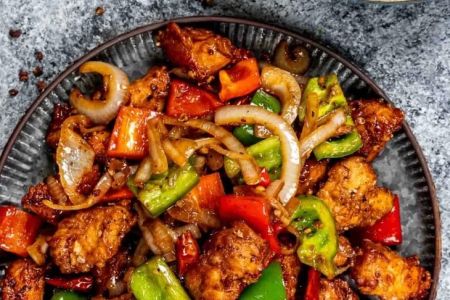
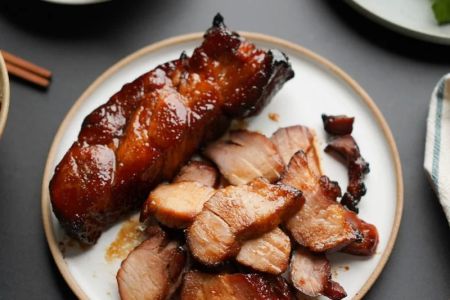
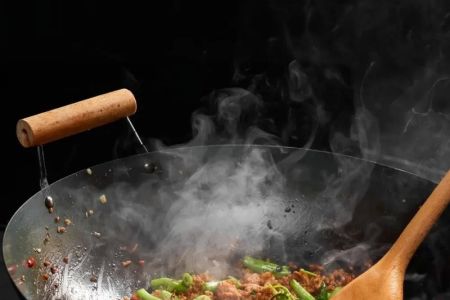
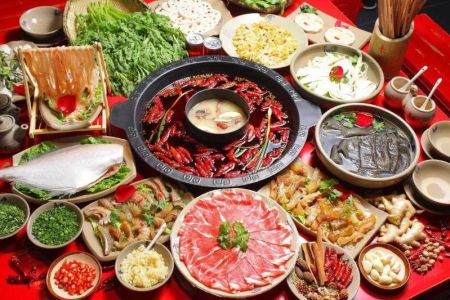
![Top Chinese Restaurants for Authentic Cantonese Cuisine in [Your City]](https://img.gochinarose.com/d33/2507/4157910400_450x300.webp)
